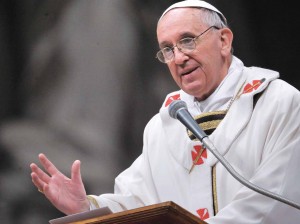 I can remember vividly that August morning nearly eleven years ago. I sat cross-legged on the floor of my family room facing my soon-to-be two year old son reclining in his little rocking chair and my newborn daughter nestled in her baby swing. The house was quiet. My husband had just left for work – his first day back after the birth of our daughter, and my parents had returned to their house after helping us out for a week or so while I recovered from my cesarean.
I can remember vividly that August morning nearly eleven years ago. I sat cross-legged on the floor of my family room facing my soon-to-be two year old son reclining in his little rocking chair and my newborn daughter nestled in her baby swing. The house was quiet. My husband had just left for work – his first day back after the birth of our daughter, and my parents had returned to their house after helping us out for a week or so while I recovered from my cesarean.
I looked at the innocent, trusting, beautiful faces of my children and wondered when someone more responsible than I was going to show up on the job – someone who knew what they were doing….because I certainly did not have a clue.
Filled with self-doubt, I poured through parenting book after parenting book looking for the answers that would transform me from a quivering amateur into a calm, cool, professional parent. Amidst the myriad of information, some good and some not so good, I never did find the answers I was looking for, because, as it turns out, I was asking the wrong questions.
In his weekly audience last week, Pope Francis reflected on “an essential characteristic of the family, namely its natural vocation to educate children so that they grow in responsibility for themselves and for others.” The Pope spoke of the many ways this “natural vocation to educate children” had been removed from the family, saying: “’Critical’ intellectuals of all kinds have silenced parents in a thousand ways, to defend the young generations from harm, – real or imagined- of family education.”
He went on to say that “the so-called ‘experts’ have multiplied” taking the “role of parents even in the most intimate aspects of education.” The result of the influence of these “experts” in the education of children has been to relegate the role of the parents to the sidelines. The Holy Father warned that this results in the “grave” situation of parents “excluding themselves from the lives of their children.”
Pope Francis, in urging “family education to rediscover the pride of its leadership”, reiterated the consistent teaching of the church with regard to the family’s right to the education of children.
In his 1929 Encyclical Rappresentanti in Terra, Pope Pius XI says: “The family therefore holds directly from the Creator the mission and hence the right to educate the offspring.” In the 1965 declaration Gravissimum Educationis, proclaimed by Pope Paul VI, we read: “Since parents have given children their life, they are bound by the most serious obligation to educate their offspring and therefore must be recognized as the primary and principal educators.” The Catechism of the Catholic Church states: “Parents have the first responsibility for the education of their children.” (Article 2223)
The Holy Father acknowledged that the challenge of educating their children often leaves parents “paralyzed out of fear of making a mistake.” This was the position I found myself in on my first morning alone with my children. My fear drove me to ask the wrong questions. I was searching the parenting books for a tried and true method of raising children – looking for a “recipe” I could follow and presto – two mature, fully “baked” adults would emerge out of my two babies.
What I failed to realize at the time was the blessed uniqueness of the two souls sitting in front of me, looking at me with pure love and total dependence. The Holy Father encouraged all parents in educating our children to “try to understand where the children really are in their journey…where their heart really is.”
Over time, my husband and I have come to realize that the goal of educating our children is far less about the facts we can pour into their eager minds, and far more about the guidance we can provide them on their own journeys of discovering God’s world and his plan for their lives – guidance we can provide only when we take the time to really know where our children’s hearts are.
Our fear of making a mistake in “family education” cannot and should not stop us from embarking upon the enterprise. The Pope recognized that the reality of family life is often far from perfect and that family “life is not made in a laboratory, it is made in reality.” It is in the messy reality of life that true education in the virtues can happen.
I had hoped as a young Mom that I would grow into some sort of “professional parent” – an expert who had it all together. After nearly 13 years of parenting, I often feel like more of an amateur than I did on the day of my first child’s birth. However, it is in those moments of weakness, failure and frustration, that our family has learned greatest lessons about humility, sacrifice, forgiveness and unconditional love.



